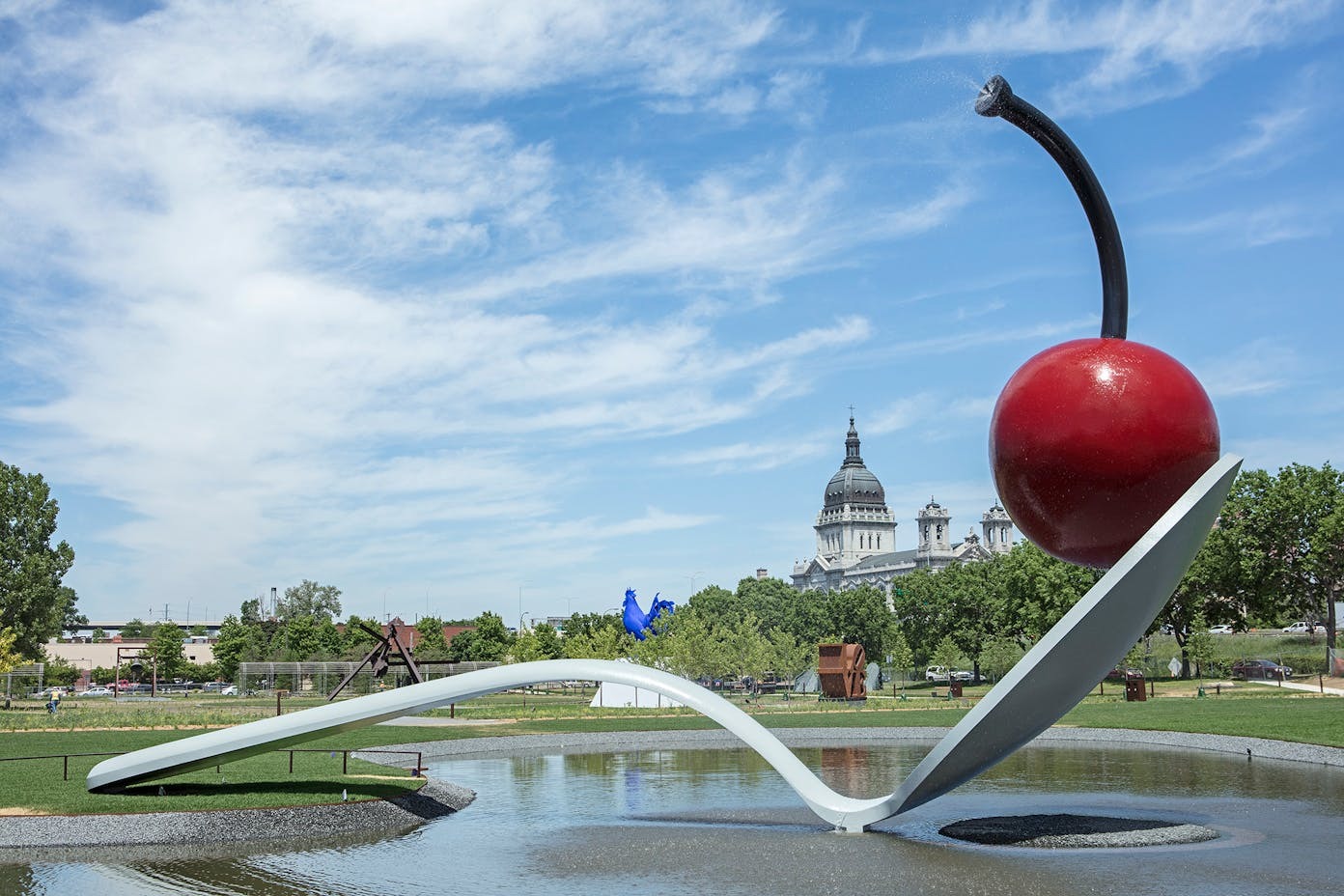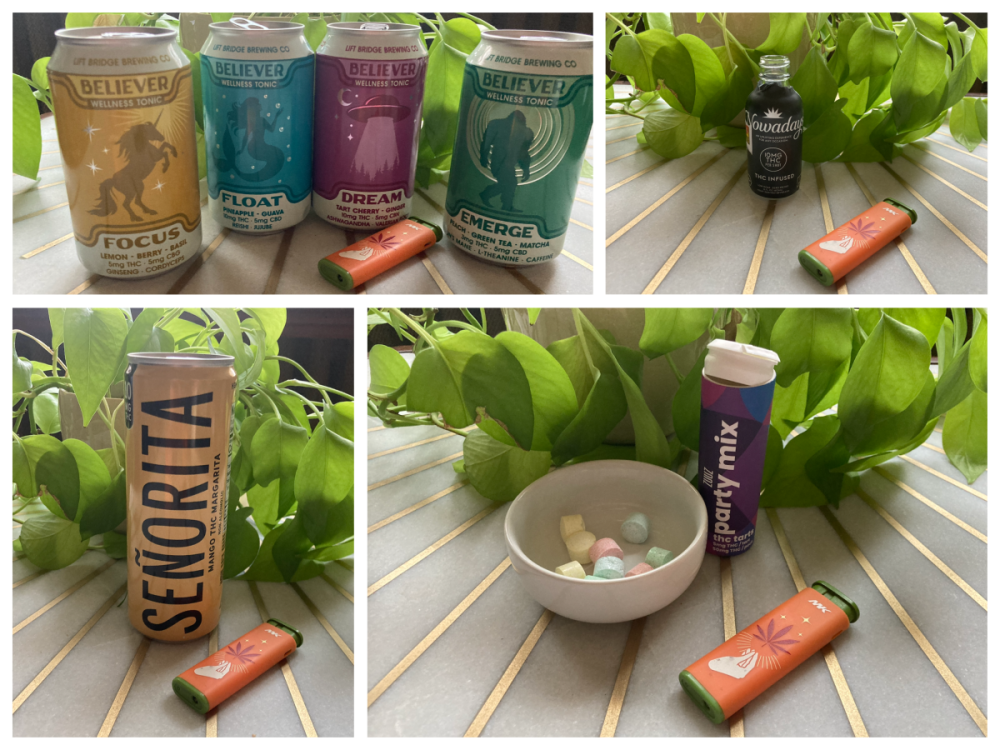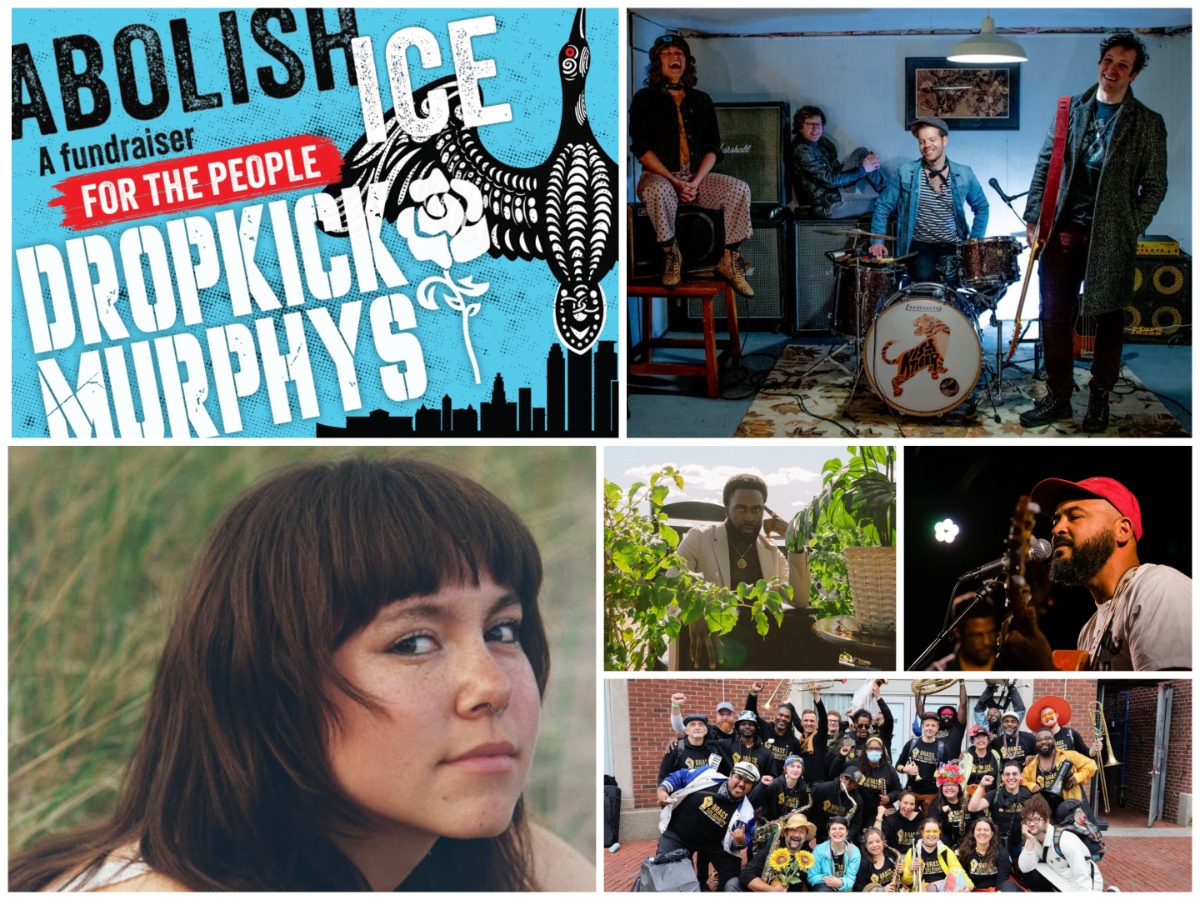Welcome back to The Flyover, your daily digest of important, overlooked, and/or interesting Minnesota news stories.
The Art Gods Giveth and the Art Gods Taketh Away
There'll be no Uptown Art Fair in Minneapolis this year, programming director Jill Osiecki said in a statement Monday. With "significant road construction" underway this summer, including the closure of Hennepin Avenue rendering "half of the event footprint inaccessible," the usual weekend event just wouldn't be doable. Instead, organizers are working on "The Uptown Art Experience," a summer-long affair with art installations, pop-ups, and more.
But don't despair (unless you're an Uptown business owner bummed about the yoinking-away of potential foot traffic), because there's a brand-new art fair in the works at the Minneapolis Sculpture Garden. The folks behind the Minnehaha Falls Art Fair and the operators of the 2024 Edina Art Fair are coming together to create the Minneapolis Sculpture Garden Art Fair, a celebration of "art, mothers, and community" (it's planned for Mother's Day weekend, May 11 and 12). There'll be a botanical market and food in addition to the art; you can find all the info here.
Kind of an aside here, but I'm happy to see the Walker Sculpture Garden getting activated lately! There's this, there's the in-the-works food stand—nothing against the famous spoon and the big blue cock and the Jenny Holzer benches (a personal favorite), but if you ask us, it's a good idea to give people new and exciting reasons to visit. Make it a destination, ya know?
Uber/Lyft Lessons
Perhaps you've heard that Uber and Lyft are threatening to leave Minneapolis. This wouldn't be the first time the rideshare duopoly threw a little tantrum and left town—they did the same thing in Austin, Texas, back in 2016, abruptly absconding after voters upheld new background check requirements for drivers. (No, they have your best interests in mind! Really!)
For Axios today, Kyle Stokes had a good idea: Let's take a look at the results of that departure. Several startups quickly stepped in to fill the void, and a University of Texas marketing professor says passengers were "generally happy" with the new options. Ridership went down overall, though, with less than half of former Uber and Lyft users downloading the new apps, according to a Texas Transportation Institute survey asking folks about the types of transportation they used after Uber and Lyft left. And even those who used the new apps used them about half as often.
From what researchers gathered, it sounds like a lot of people (41.2%) simply started... driving their own cars (doesn't bode well for drunk driving rates). I'm curious about that 6.6% "other" figure, though, which is more than the number of people who say they switched to bikes, public transit, and taxis combined. And I'm curious about the percentage of people who'd answer that, push come to shove, they just didn't need a rideshare app! I have Lyft on my phone, for example, but according to my ride history, I use it about once a year. How many of those people just decided they didn't need to download a new app? Are they included in "other"? Another percentage I'm curious about: Have researchers done a follow-up survey to see how many riders re-downloaded Uber and Lyft upon their return?
Anyway, I'm on a tangent, and none of this ultimately mattered, because as Stokes writes, "The Texas Legislature — after heavy lobbying from Uber and Lyft — overrode Austin's fingerprinting ordinance in May 2017. Uber and Lyft returned to the city shortly thereafter." (Emphasis ours.) Most of the startups eventually folded; they got less than a year to make a go of it. So really, I don't know that we can learn much from this except what increasingly seems like an inevitability here: The government will step in on behalf of Silicon Valley tech firms, regardless of the will of the people.
Cremations, Teeth, and Increased Mercury Emissions
File this one under "unintended consequences": For the Duluth News Tribune, Jimmy Lovrien writes that as more and more of Minnesota's deceased are cremated (we're up to 72.7% as of 2022), mercury emissions are on the rise. "Ashes to ashes, dust to dust, dental fillings to mercury emissions," Lovrien begins, explaining that while mercury emissions from other industries are falling, those from cremations have almost doubled. Here's the science:
When dental amalgam — a tooth filling made up of elemental mercury, silver, copper, tin and zinc — is exposed to extremely high cremation temperatures, the mercury volatilizes and enters the atmosphere as vapor. It can then return to earth, converting to toxic methylmercury as it enters the food chain.
There are mercury reduction systems for crematoriums out there, but Minnesota doesn't require crematoriums to reduce their mercury emissions. Without regulations around their use, the expensive scrubbers are a rarity, and there are few reasons (besides the environmental ones) to install them.
Native Music on Vinyl
OK, so this one's from mid-March, but I only saw it for the first time today via the reliably excellent MPR Instagram account. (Blame the reliably wacky Instagram algorithm.)
MPR's Melissa Olson profiled Justis Brokenrope, a music collector who's also Sicangu Lakota, and who's been revitalizing Indigenous art and language thanks to his incredible collection of vinyl by Native musicians. Today, Brokenrope guesses he's amassed roughly 300 records by Indigenous artists, most of it released between the 1960s through the late '80s. There's folk, rock, country, and more rarely heard music, which the collector shares by digitizing the albums and by DJing live sets with them, often in the Dakota language.
“They got a guitar somewhere or traded something for a guitar, and then their music was documented by something like the [Canadian Broadcast Corporation]," Brokenrope tells MPR. "And so those records exist. And then that was just like, mind blowing to me."






